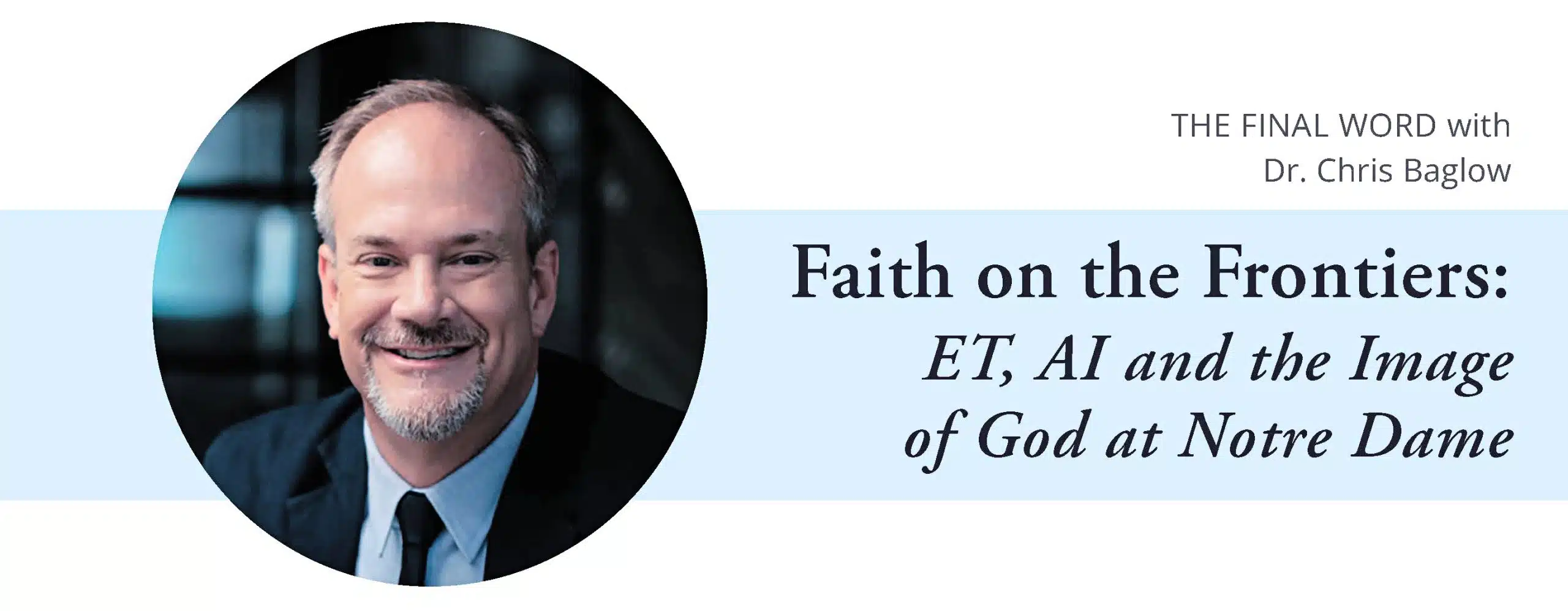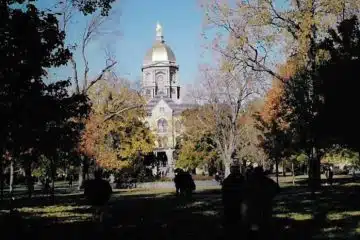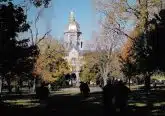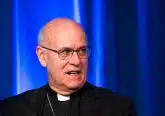Faith on the Frontiers

SETI (the Search for Extraterrestrial Intelligence) picks up a patterned transmission distinguishable from the random noise of the galaxy. The configuration is repeated. It becomes clear that the emissions are a nested code: an overlay of prime numbers and, under it, a primer to establish a language and a request, seemingly earnest and friendly, to the U.S. government to make contact. Could this be a human trick, a deceitful use of artificial intelligence by scientists working for a foreign government, attempting to embarrass U.S. political leaders? But the U.S. President hits upon a strategy to verify the authenticity of these messages. Questions will be sent in the same code as the radio emissions to discern whether the source is enemy artificial intelligence or embodied rational creatures, persons alien, yet created in the image of God as we are. What questions would you formulate to discover whether or not we are alone in the universe?
This sci-fi scenario was a final exam essay question on my Faith and Science course at Notre Dame. In the course, we spent three weeks on questions related to what science and faith together can tell us about what it means to be human. In the face of technologies that seem to mimic us perfectly, and even surpass us in intelligence, can we know? Here are some of the best “Questions for ET” I received:
- “Would you give up everything for your parents? A being who lacks free will is incapable of this kind of love—the love where one is willing to sacrifice one’s own well-being for the good of others. Human beings have spiritual bonds with others that are characterized by love, but AI lacks these characteristics, because it does not possess free will to love and develop relationships.”
- “Tell me about your childhood. It takes a long time to cultivate important features of rational creatures: language and symbolism. Therefore, if one asks a human—or any rational—being to speak about their childhood, they share vivid memories of their early life: ‘the human animal is the only animal that in principle has an autobiography.’”
“Tell us the story of creation for your world and species. Aliens made
in the image of God would likely share a similar creation story. They would likely relate to this ordered creation and emphasize in it the uniqueness of their own species within that world. A computer would not be quick to recognize the divine presence in the creation of the world. It would likely limit the creation story to biological origins.”
- “How would you go about making a decision that aligns with your values when faced with an ethical dilemma? Inquiring about ethics and moral reasoning allows a rational human to respond with something that reflects their complex interplay of emotions, cultural influences and personal Humans often develop a sense of ethics through their experiences, guidance and cultural influences during childhood. AI lacks inherent moral values and ethical principles, as they don’t have a personal moral development process.”
I was deeply impressed with these questions and explanations, precisely because they revolve around issues so closely related to faith. In the words of sociologist Christian Smith, humans are “moral, believing animals”—issues of a Creator, of good and evil; the meaning of the universe’s origins, of life and of our own lives is essential to what makes us human. I recalled Pope St. John Paul II’s maxim, so often repeated in the course, that “Science can purify religion from error and superstition; religion can purify science from idolatry and false absolutes.” What my students’ essays revealed was science and faith forming a “wider world” through forging a relational unity between them.
If our universe is inhabited by other divine image-bearing beings, our own grasp of what and who we are will be foundational to any encounter with them that the future might hold. But more importantly, our continuous encounter with Jesus living within us and in others is enriched when we see more clearly the humanity we share with Him.
Dr. Chris Baglow is the Academic Director of the Science & Religion Initiative of the McGrath Institute for Church Life at the University of Notre Dame.
This article appeared in the April 2024 edition of The Catholic Telegraph Magazine. For your complimentary subscription, click here.













